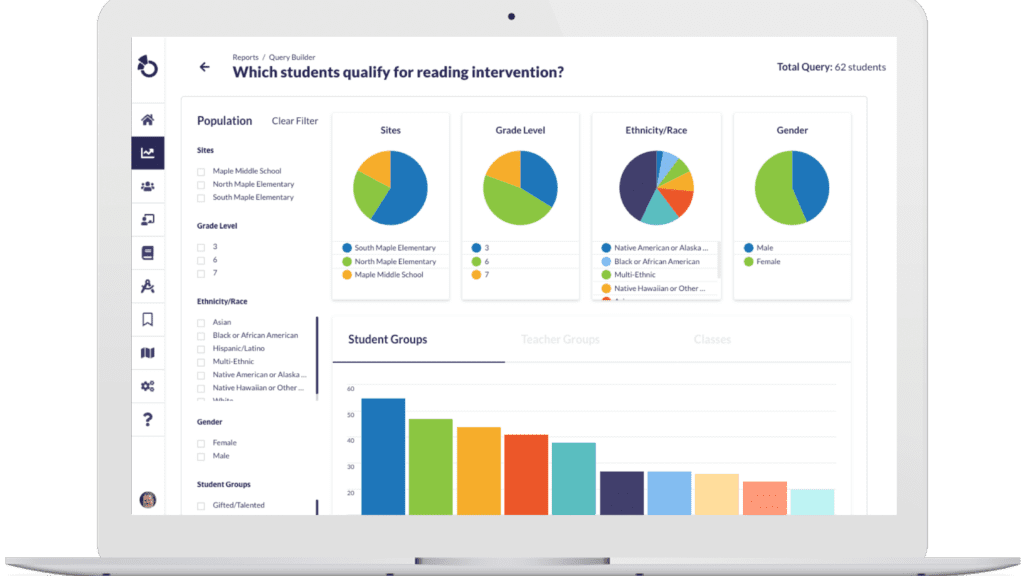Title I
Otus is an edtech platform that can support schools and districts in improving the quality of instruction, providing professional development, and offering additional resources for students from low-income families.
Here are three ways Otus can contribute to these objectives:
Improving the quality of instruction
Otus offers a range of tools for teachers to create and manage lesson plans, assessments, and assignments, which can help them personalize learning experiences for their students. The platform provides data analytics, enabling educators to track student progress and identify areas where they may need additional support. By utilizing Otus, teachers can differentiate instruction and more effectively address the unique needs of each student, leading to a higher quality of instruction.
Providing professional development
Otus can facilitate collaboration among teachers, encouraging them to share best practices and learn from one another's experiences. By leveraging these resources, schools can support the ongoing professional growth of their educators.
Offering additional resources for students from low-income families
Otus can support equitable access to educational resources for all students, regardless of their socioeconomic status. The platform can be used to distribute digital resources such as e-books, videos, and interactive learning materials, which can be particularly helpful for students who may not have access to physical textbooks or supplementary materials at home. Additionally, Otus enables communication and collaboration between students, teachers, and families, fostering a supportive learning environment for students who may need extra assistance. By providing these resources and tools, Otus can help bridge the opportunity gap for students from low-income families.
Title IV
Otus can support schools and districts in increasing access to technology and using it to improve academic achievement.
Here are three ways Otus accomplishes these goals:
Centralized platform for educational tools
Otus offers a comprehensive and integrated platform that consolidates various educational tools and resources in one place. This centralized system can increase access to technology by providing a consistent and user-friendly experience for students, teachers, and families. By streamlining the use of digital resources, Otus can help reduce barriers to technology adoption and make it easier for schools to implement and manage edtech initiatives.
Data-driven decision-making
Otus provides educators with actionable data and analytics on student performance, which can be used to inform instructional decisions and strategies. By offering tools for tracking and analyzing student progress, Otus enables teachers to identify areas where students may need additional support or resources. This data-driven approach can lead to more targeted and effective interventions, ultimately improving academic achievement. Additionally, the platform supports sharing data with other teachers and administrators, fostering collaboration and promoting a data-informed culture within the school community.
Professional development for effective technology use
Otus can support educators in developing the skills and knowledge necessary to effectively integrate technology into their teaching practices. This focus on professional development aligns with the stipulation that a portion of Title I funding should be used for PD, helping schools and districts meet this requirement while also enhancing their educators' capacity to use technology to improve academic achievement.
- Improving the quality of instruction by providing tools for teachers to personalize learning experiences, track student progress, and address unique needs.
- Providing professional development by facilitating collaboration among teachers and promoting ongoing growth for educators.
- Offering additional resources for low-income students by supporting equitable access to digital resources, communication, and collaboration.
Related Resources
Request a demo!
See exactly how Otus can help your school accelerate student growth and improve student outcomes – all while saving educators time.





